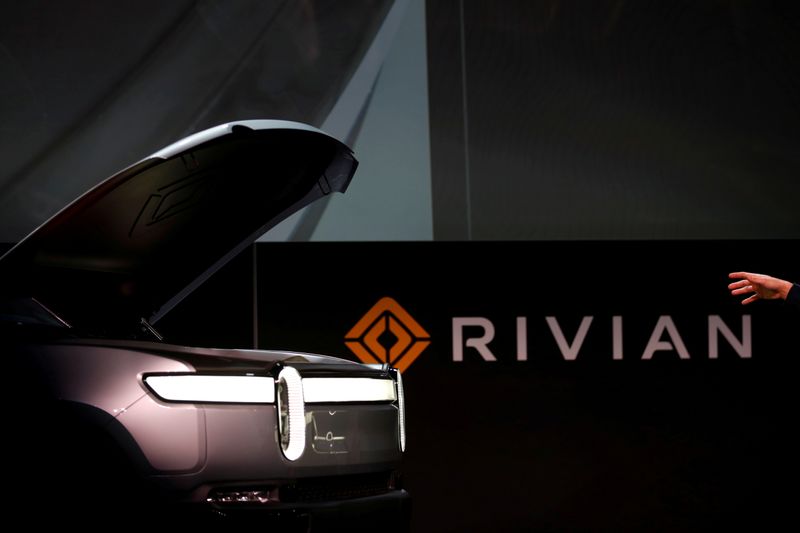Investing.com -- Shares of Rivian Automotive (NASDAQ:RIVN) climbed 4% today after details emerged about a confidential agreement with the United Auto Workers (UAW) that could facilitate unionization at the company's Illinois factory. The pact, which has not been publicly disclosed, reportedly includes a commitment from Rivian to adopt a neutral stance toward unionization efforts, contingent on the electric-vehicle maker achieving profitability, according to a report from Bloomberg, citing people familiar with the matter.
This development comes as Rivian has been under scrutiny for its labor practices and has faced pressure from the UAW to improve working conditions. The agreement could potentially smooth the path for a $6.6 billion conditional loan from the US Energy Department, which Rivian is seeking to fund the construction of a new EV plant in Georgia. The loan is still subject to Rivian meeting various technical and financial criteria.
The news of the union agreement has provided a positive signal to investors, as it suggests a more collaborative approach to labor relations, which could be beneficial for the company's long-term growth and stability. Rivian's relationship with the UAW had previously been a point of contention, particularly with the pro-labor Biden administration.
The move towards a union-friendly stance is significant for Rivian, which has yet to post a quarterly adjusted profit and has been contending with supply chain issues and a slowdown in EV demand. In a November investor call, Rivian indicated that it is on track to reach "positive gross profit" this quarter, primarily driven by the sale of regulatory credits. The company's CFO, Claire McDonough, stated that Rivian expects to see a positive gross profit margin in 2025, though not consistently in every quarter.
Unionizing the workforce could also enhance Rivian's reputation as an alternative to Tesla (NASDAQ:TSLA) and other non-unionized EV manufacturers, potentially attracting customers who value labor standards and worker representation. However, the neutrality agreement's effectiveness hinges on Rivian's financial performance, as it needs to achieve profitability for the terms to take effect.
While Rivian has not commented on the agreement, and the UAW has declined to comment, the disclosure of these details has clearly resonated with investors, as evidenced by the uptick in Rivian's stock price. The company's progress toward profitability and its evolving labor relations will continue to be key factors in its trajectory in the competitive EV market.
This article was generated with the support of AI and reviewed by an editor. For more information see our T&C.
